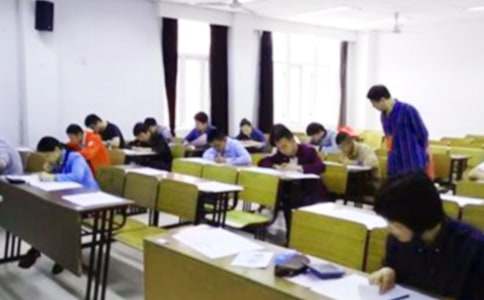2017年高级剑桥商务英语口语考试资料
无限相信书籍的力量,是我的教育信仰的真谛之一。以下是小编为大家搜索整理的.2017年高级剑桥商务英语口语考试资料,希望对正在关注的您有所帮助!更多精彩内容请及时关注我们应届毕业生考试网!

part 1
Market Research
The definition of market research: study carried out by a company before launching a new product, into the needs, lifestyle, income, etc of potential buyers and to measure the success of similar products that are already available. It may involve interviewing people in the street or giving away sample product.
○1 Market research can be done for both a product and a company. As for a product, it is the first step when promoting a new product. It can find out whether the market accept the product or not. As for the company, market research can find out the customers’ opinion about the after-sales services and corporate image.
○2 There are generally four ways of doing market research, observation, survey, questionnaire and telephone interview.
○3 There are four procedures while doing market research. First, represent suitable questions. Second, record the customers’ feedbacks. Third, gather these statistics. Forth, analyse them and draw a conclusion.
VI. Sales
Ex: How to sell a product effectively in international markets.
○1 Advertising. Choose a media to advertise your products in a foreign country, TV commercials, magazines, bill board, or etc. Make sure it suits the local tastes. Maybe you can try to sell on the net; it will receive the world-wide attention.
○2 Do market research. Find out whether the products are accepted by foreign customers. It can be carried out as surveys, observations, and questionnaires.
○3 Adjust your product to the local tastes. Although the case of your products are the same, you can change some details. Take IKEA, the largest furniture retailer, for example, is doing well in suiting the local taste.
○4 What I want to put emphasis on is franchising. Franchising is a good way to sell your prosuct in a foreign country. As local businessmen understand their own culture best.
part 2
Advertising
1. Media
○1 The types of media: TV and radio commercial, newspapers and magazine, poster and bill board, direct mail, the Internet, etc
○2 Advantages and disadvantages of the major types
TV: high attention, combination of sight, sound and motion; high cost and less audience selectivity.
Newspaper: flexibility, good local market coverage, broad acceptance; short life, poor reproduction quality.
Magazine: high geographic and demographic selectivity, credibility, long life, good pass-along readership; having rivals in the same magazine.
Direct mail: audience selectivity, flexibility, no ad competition within the same medium; relatively high cost, junk mail image.
Internet: high reach of international audience, similar effect as TV commercial, interactive; the users of Internet are limited, compared with TV.
○3 Consider your target audience and your budget to make a wise decision.
2. Agency
○1 Select a suitable agency
A. Consider the reputation and past performances of the agency. Agencies provide the client with the services of highly skilled individuals who are specialists in their chosen field.
B. Same compensation philosophies. Different compensation systems may result in disagreement.
C. Stability in agency’s policies. Mergers and acquisitions may lead to policy changes. This will have negative effect on the performance of the agency.
○2 Ensure that agencies maintain a high level of effectiveness.
A. Regular reviews: financial and qualitative assessments.
B. Financial audit: It is designed to verify costs and expenses, salaries for the employees, and payments to the media and outside suppliers.
C. Give detailed instructions or certain trainings to the agencies about how to represent a company.
D. Make full disclosure of any potential and existing conflict of interest. One agency cannot run two accounts which are indirect competition with each other. In some cases, even indirect competition will not be tolerated.
3. Trade fair and exhibition
○1 Types of exhibition. What are exhibited? Whether it is related to your field? Whether you can find potential customers, suppliers, or partners?
○2 Scale of exhibition. How many participants are listed? Whether it is local or national or international?
○3 Publicity of exhibition. How far is the organizer willing to increase public awareness? Whether they are able to attract public attention and the leading companies of the field?
○4 Cost of admission. Some of the exhibitions are relatively high, because they wish to attract only the professionals of their own field. Some are admission free, because their target market is the entire population.
○5 Other points: Location, transportation, accommodation and time.
Ex: The importance of selecting appropriate members of staff to attend exhibitions.
○1 The exhibition is a stage for a company to exhibit its product, capacity and credibility.
○2 The members need to know every aspect of the product and the company, and what the company wants in the exhibition.
○3 They should have eloquence to promote the product and the flexibility to adapt to the changes.
○4 Because they represent the image of the company, they should also have a good physical appearance.
【2017年高级剑桥商务英语口语考试资料】相关文章:
高级剑桥商务英语口语考试精选词汇08-25
剑桥商务英语考试高级考试题05-15
剑桥商务英语口语08-20
剑桥商务英语考试高级冲关试题08-25
剑桥商务英语高级口语考试词汇辅导08-25
剑桥商务英语高级考试全真模拟试题08-19
高级剑桥商务英语考试重点训练08-16
剑桥商务英语考试高级阅读加分训练08-27
剑桥商务英语高级考试阅读理解每日练习08-23